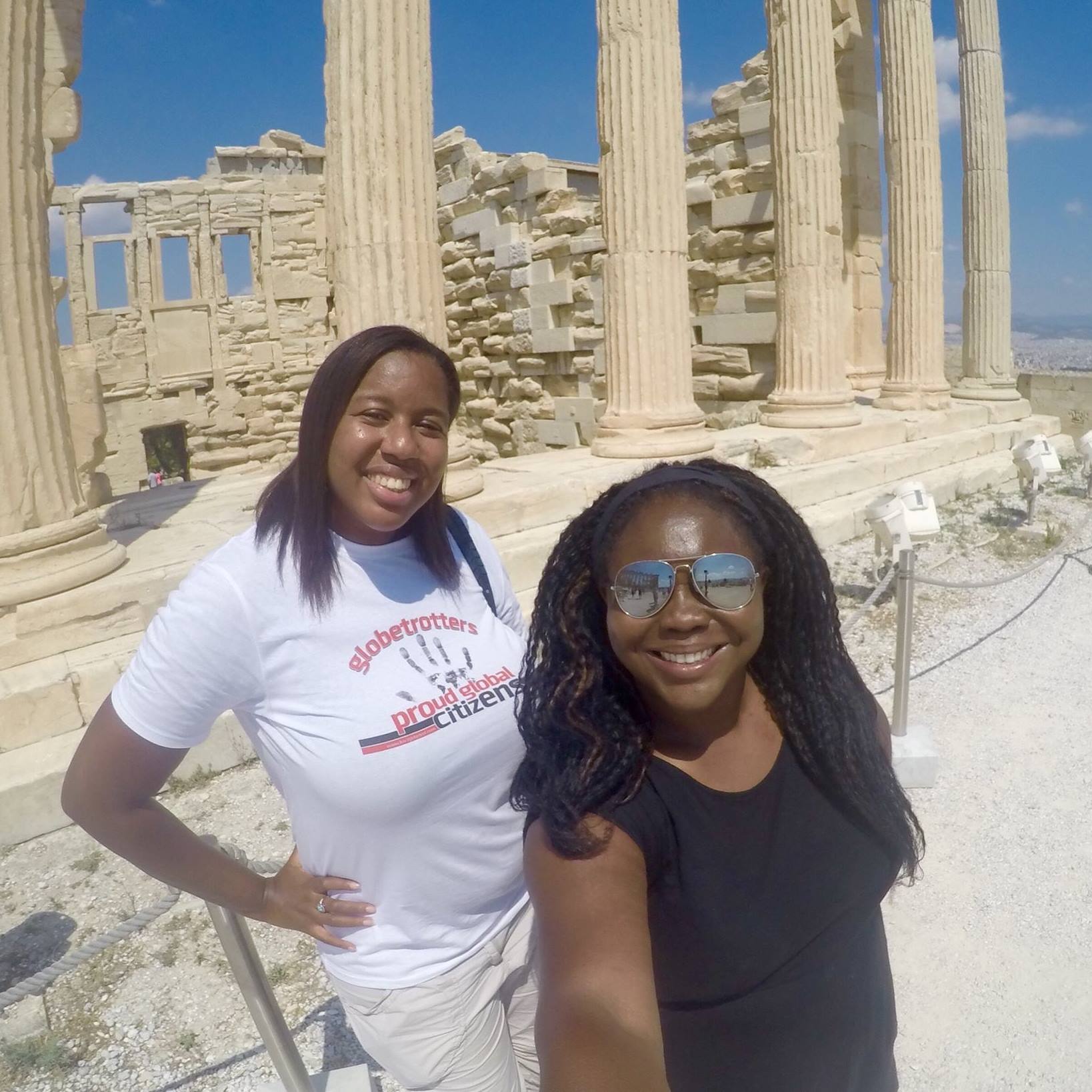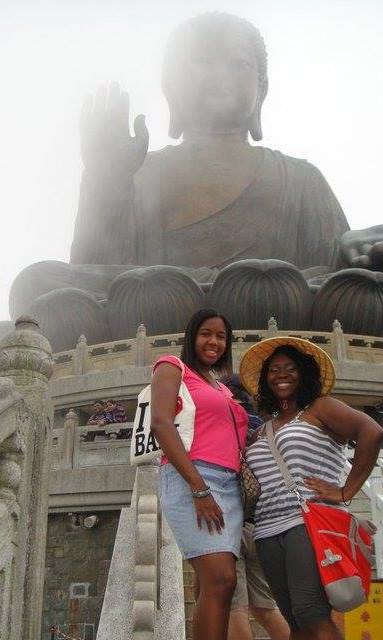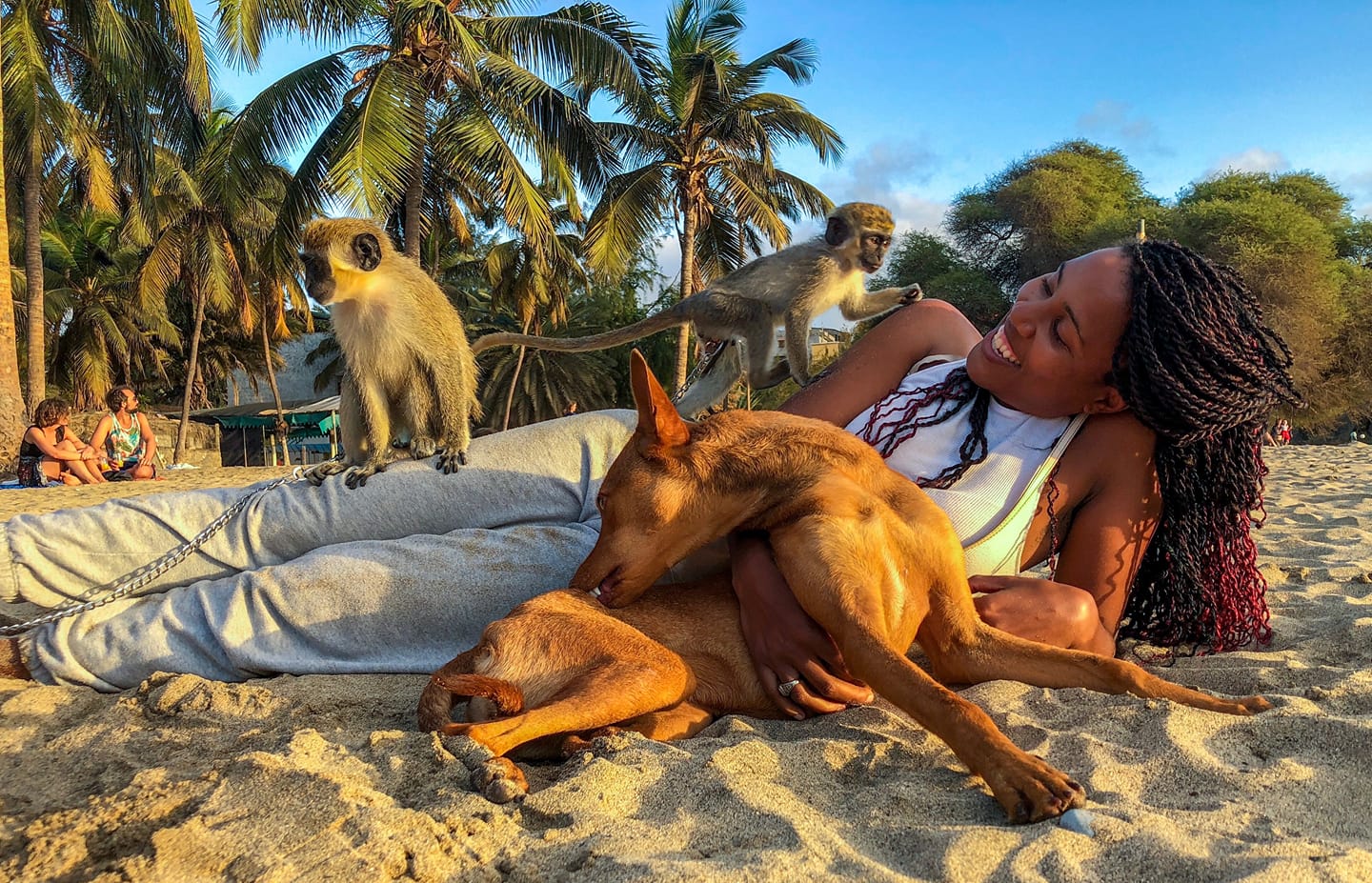
Source: Renee Evans and Nicole Brewer / Renee Evans and Nicole Brewer
We already know Black women in America are ruling the entrepreneurship scene, as they are the fastest growing group of entrepreneurs, according to Fortune Magazine. Women now own 30% of all businesses in the U.S., accounting for some 9.4 million firms. African-American women own 14 percent of the 9.4 million companies owned women, or an estimated 1.3 million businesses, Black Enterprise reported. But did you know Black American women are also making major business moves overseas?
Renee Evans and Nicole Brewer met in 2010 in South Korea. Both were there as English as Second Language teachers. Brewer had been laid off from her market research job in Chicago doing the economic downturn almost a decade ago and decided to go to Korea for a year but loved it so much she kept renewing her contract.
“I had just finished university and started teaching at a really terrible school. I also found myself in an extremely physically abusive relationship,” Evans told us. “Korea literally saved my life because it gave me a chance to escape and start over. It has been ten years since I’ve left America, and I haven’t looked back since.
After three-and-a-half years in South Korea, the ladies went their separate ways –Brewer moved to Oman and Evans to Sydney, Australia. But after becoming friends and traveling together often on vacation, the pair saw a business niche they thought they could fill and the two expats (who have traveled to some 30 countries combined) created I Luv 2 Globe Trot in 2012. I Luv 2 Globe Trot, which was a 2014 nominee of the Black Weblog Awards, is a community for travelers of color offering advice and comradery.
“Nicole and I took our first vacation together to the Philippines in 2009. While we were there, we noticed that we did not see anyone like us. Of course, we go the standard stares, but people were just really curious about where we were from and couldn’t believe we were Americans. From that trip, Nicole and I wanted to not only inspire others of color, but also educate them on how to live and work abroad and how to book their own vacation,” said Evans, who graduated from the University of Miami with a BA International Studies and Political Science. She is currently studying for her MA in Education.

Source: Renee Evans and Nicole Brewer / Renee Evans and Nicole Brewer
Having an idea is one thing, executing it–especially overseas–was another for Evans and Brewer, a graduate of the University of Michigan with a BA in Communications and an MA in International Humanitarian Action.
“One of the major challenges is deciding which companies to do services through. For example, when we wanted to sell products it was harder to find a manufacturer in our locations without having high expenses to ship from either Oman or Australia,” Brewer said.
Not having business connections or a full grasp on the foreign market are common challenges when starting a business overseas. When Kiyeeda Di Ana moved from Dallas to her ancestral country of Cape Verde (CV) in West Africa, she wanted to open a hostel but found dealing with landlords and properties in Cape Verde was not the same as in the U.S.
“I encountered several obstacles due to not knowing the market,” Di Ana explained to MadameNoire. “I tried to do the hostel in the city of Praia. However, I ran into problems with the properties I chose. Most landlords live outside of the country and do not execute due diligence in maintaining their properties. I rented many different buildings before finding my current space. I ended up moving to another city (Tarrafal) where rent and competition were lower and tourism was higher.”
Di Ana decided to move to CV after about two months of working at a hostel in the capital city of Praia. “I had never visited CV or any part of Africa before this and it was sort of a spur of the moment decision. Immediately before moving to CV, I had been living in Rio De Janeiro for seven months. I had to leave Brazil because I had already surpassed the six-month time limit for my visa. I wasn’t ready to go back to Dallas where I’ve been living my whole life so I decided to continue east. I considered Angola but didn’t feel like dealing with the visa limitations again and then suddenly I remembered Cape Verde. I knew I wouldn’t be constrained with visa limitations because I could apply for citizenship as my mother was born here.”
A hostel was the perfect business for Di Ana for more reasons than one. “After working at what was the only hostel in Cape Verde (yet owned by Portuguese expats), I was so inspired that I wanted to create my very own hostel. I was hell-bent on starting a business for the simple fact that I saw a need for more Black-owned businesses,” she pointed out. “The Chinese, Lebanese, and Portuguese are really running things here and I was sick of it. I wanted to throw a wrench into these plans! At this time I had never encountered a young, Black expat who had come back to invest in the country. We are few and far between.”
Di Ana opened Hostel Pontu D’Nkontru (or Meeting Point Hostel), under the business group of Agencia de Imobiliria Vida Verde (directly translated to Green Life Real Estate Agency). In the process of all of this, Di Ana found that her Masters in Commercial Real Estate came in handy. She knew the ins and outs of real estate, and could use this to negotiate property deals in Cape Verde.
Of course, among the challenges of doing business in another country is the language. This was an obstacle for Di Ana, as the official language of Cape Verde is Portuguese and the common language is Kriolu.
“If English is not a commonly used language where you’re setting up, get a local partner or hire someone who can translate for you,” advised entrepreneurial and business coach Lori Granito, an American who has been living abroad for 26 years in Hong Kong and operates her business coaching and speaking firm from there.
Another challenge when opening business in a different country is not understanding the way the business sector there operates. Some countries have stricter rules and longer process times for starting companies. Di Ana can relate. “I had challenges learning the language, shipping goods here (furniture for my hostel and my car) with all of the customs bureaucracy, the unnecessarily delayed citizenship and business licensing process, plus maintaining yourself financially during the low-season of tourism.”
You also need to look into the details of owning a business in another country as an American. “Find out what the different options are for incorporating your business and use a good CPA. Make sure if you’re a U.S. citizen, you remember to still file U.S. taxes. Also, research what the visa requirements are for you to work in the country that you want to set up a business,” said Granito.
According to Granito, one of the biggest mistakes you want to avoid when setting up a business overseas is not first studying the market. Di Ana worked in a Cape Verde hostel before deciding to venture into the field. It’s also important to have the right name for your business. Some names just won’t fly in another country. “The biggest mistake is assuming that a concept that works well in your home country will automatically do well abroad. Make sure to be aware of cultural differences and translations. Think of the car NOVA which didn’t do well in Latin America because the name translates into ‘No Go,’” Granito said.

Source: Renee Evans and Nicole Brewer / Renee Evans and Nicole Brewer
Making meaningful relationship connections can also be a problem when living so far from home and dealing with different cultural norms.
“I have faced challenges with relationships here, i.e. meeting true friends and lovers. Many times it is hard to decipher genuine people versus those who have an interest at hand. This can cause one to isolate themselves from everyone, causing them to feel depressed or homesick much quicker than normal,” Di Ana said.
But she agreed there are great things about having a business overseas as well, including entering uncharted waters. “The best thing about having a business in Cape Verde is it’s like a big blank canvas…You can paint your own future, you just have to find, make, or mix the paint. Nothing is impossible here.
“I recently started teaching dance classes for little girls between 6 and 12 years of age. I felt obliged to do this as I noticed that there was nothing for little girls to do after school here. I teach them hip hop, jazz, and African dance. I don’t only want to have a business here, I want to make a difference here.”








